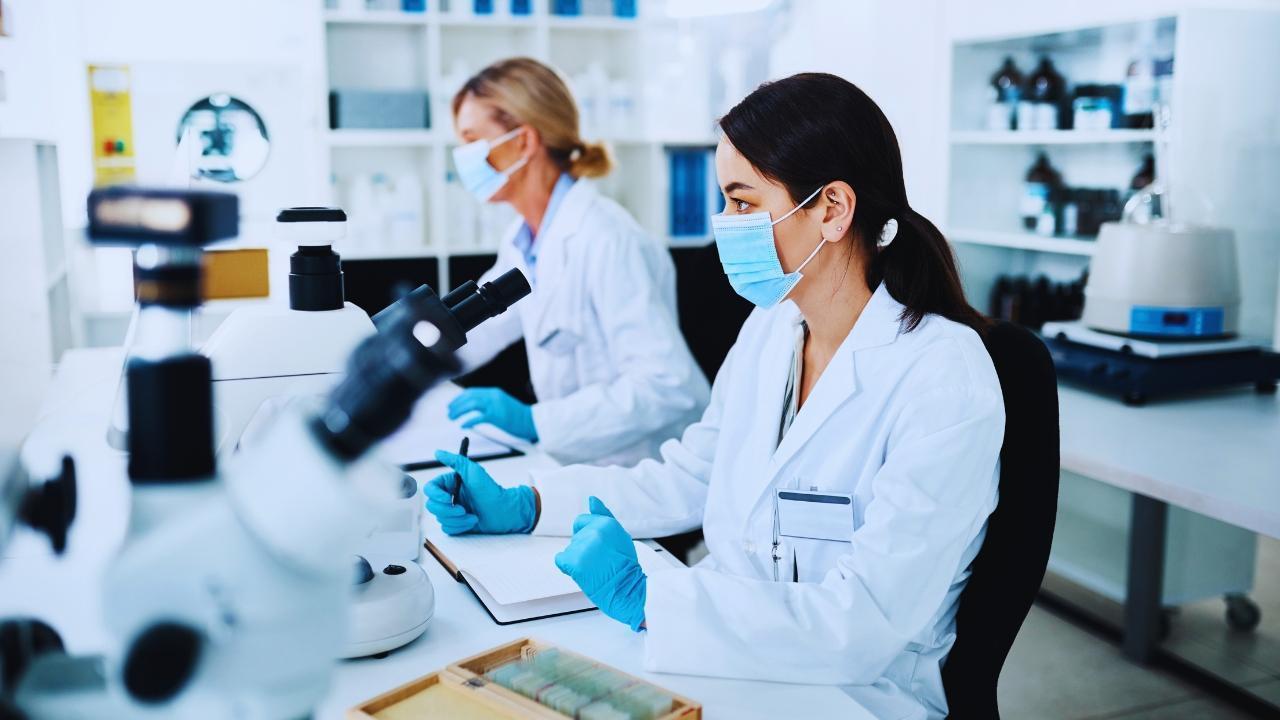You have not yet added any article to your bookmarks!

Join 10k+ people to get notified about new posts, news and tips.
Do not worry we don't spam!

Post by : Anis Farhan
In a world grappling with blood shortages, transfusion risks, and donor mismatches, the dawn of lab-grown blood isn't just a technological milestone—it may be a revolutionary shift in global healthcare. For decades, hospitals across continents have faced the same persistent challenges: not enough donors, not the right type, or the inability to meet sudden demand during disasters or conflicts. Today, science is on the brink of rewriting that equation entirely.
Scientists in the UK and Europe have officially begun human trials to test blood manufactured from adult stem cells. While this isn't the first time lab-made blood has been discussed, this is the first instance it's being transfused into actual patients under rigorous clinical supervision. The potential implications are staggering—from treating rare blood disorders like thalassemia and sickle cell anemia to helping trauma victims where donor blood may not be available in time.
Lab-grown blood starts with stem cells—unspecialized cells that have the ability to become other types of cells. In this case, scientists harvest stem cells from adult blood donors and "trick" them into becoming red blood cells. This is done by culturing them in a nutrient-rich bioreactor that mimics the bone marrow environment.
One of the key advantages is the ability to cultivate only the youngest, healthiest red blood cells, which are more efficient and long-lasting than the average cells found in traditional blood donations. A typical donated unit of blood contains cells of varying ages, which can affect how well and how long it works once transfused into a patient. Lab-grown blood, by contrast, offers precision and consistency.
While the ultimate goal is to produce blood for mass clinical use, the initial focus is on patients with ultra-rare blood types or chronic transfusion needs. For example, patients with blood conditions like Diamond-Blackfan anemia or those who have developed antibodies against most common blood types often wait weeks—sometimes months—for compatible donations.
Lab-grown blood could eliminate this uncertainty. Because scientists can tailor-make blood with exact antigen profiles, the chances of a transfusion reaction drop significantly. It's a leap toward personalized transfusion medicine, particularly valuable in multicultural societies with diverse genetic backgrounds.
As with any clinical breakthrough, caution is paramount. Human trials aim to ensure the lab-grown blood is not just effective, but also safe. Researchers are currently testing how long these lab-created cells last in the human body and whether they behave identically to their naturally donated counterparts.
There are also concerns about cost. Producing even a small amount of lab-grown blood is extremely expensive right now—estimated to be hundreds of times more than a standard unit of donated blood. However, if trials show strong results, scaling up production could bring down costs dramatically, especially with automation and AI-enabled bio-manufacturing technologies.
According to the World Health Organization, around 118 million units of blood are collected globally each year—but the demand is far higher. Developing countries face the brunt of this imbalance, often relying on family replacement donations, which aren’t always safe or timely.
Natural disasters, conflict zones, and pandemics exacerbate these shortages. During the COVID-19 crisis, many countries witnessed a steep decline in blood donations, leading to postponed surgeries and treatment delays. Lab-grown blood, while not an immediate substitute, provides a glimpse into a more resilient and self-sufficient healthcare future, where crises don’t automatically equate to chaos in blood supply.
One of the less talked-about aspects of lab-grown blood is the cultural and ethical dimension. In certain communities, receiving donor blood carries religious or personal concerns. With synthetic alternatives, healthcare systems could offer patients a consent-friendly option, reducing hesitation rooted in cultural or ethical beliefs.
Moreover, ethical production practices—free of animal products or genetically modified organisms—can make lab-grown blood a more inclusive offering in global health systems.
Beyond hospitals and urban healthcare centers, one of the most compelling use cases for lab-grown blood is in military medicine. Soldiers injured in remote areas often face life-threatening delays in receiving compatible blood. If synthetic blood can be stored longer and in more extreme conditions, it could revolutionize battlefield medicine.
Similar potential exists in space exploration and disaster relief operations, where carrying fresh blood is logistically challenging. Compact, freeze-dried versions of lab-grown blood could become a core item in emergency medical kits for astronauts, first responders, or even mountain rescue teams.
Not for a long time. Blood donation is still the most accessible, cost-effective, and scalable method of supplying hospitals. However, for highly specialized cases or rare medical conditions, lab-grown blood could offer a superior alternative. It will likely serve as a complement rather than a replacement for traditional blood drives.
Furthermore, there's a profound societal value in donation. It builds community responsibility and empathy—values no machine or lab can replace.
For many low- and middle-income countries, dependence on foreign aid or international blood banks is a reality. In crisis situations, this dependence can prove fatal. By investing in biotechnology like lab-grown blood, these countries could reduce reliance on global aid, particularly in emergency care and surgical interventions.
Imagine a mobile blood unit equipped with bioreactors that can produce blood on demand, even in remote villages. That’s not science fiction—it’s a tangible future if this innovation continues to evolve and receive the investment it deserves.
If the current trial phase proves successful, the next step would be large-scale clinical trials across different populations and health conditions. Regulatory bodies like the European Medicines Agency and FDA will closely evaluate the safety data before giving approval for broader use.
There’s also hope that private investment will accelerate development. Several biotech firms are already exploring commercial pathways for lab-grown blood, banking on its long-term profitability and humanitarian potential.
Even if you’re not a patient in need of transfusion, this development signals how medicine is becoming more predictive, precise, and personalized. In the coming years, lab-grown tissue, organs, and cells could reshape how we think about healing. It’s not just about treating illness—it’s about building solutions from scratch, on our own terms.
In that sense, lab-grown blood is more than a biotech novelty—it’s a symbol of medical self-sufficiency. And in a world increasingly defined by unpredictability, that kind of certainty is nothing short of life-saving.
This article is intended for informational purposes only. It does not constitute medical advice or endorse any treatment mentioned. For health-related decisions, please consult a qualified medical professional.










Sumo Rocked by New Bullying Scandal as Terunofuji Admits Abuse
Retired grand champion turned stablemaster reports himself to authorities for violent conduct toward

Son of Oil Tycoon Riza Chalid Sentenced to 15 Years in $17 Billion Corruption Scandal
Jakarta Corruption Court convicts Muhammad Kerry Adrianto Riza in high‑profile Pertamina graft case

Marina Bay to Celebrate Disney Adventure With Fireworks & Fun
UOB Marina Bay Sands & Singapore Tourism Board join Disney Cruise Line for a 2-month nautical celebr

Rashmika Mandanna and Vijay Deverakonda Tie the Knot in Grand Udaipur Wedding
The beloved actors celebrated their Telugu and Kodava heritage with traditional ceremonies at ITC Me

Raja Ampat Welcomes Back Endangered Zebra Sharks
Scientific collaboration and community education drive rare species repopulation in the Coral Triang

Tomorrowland Thailand Set for Full‑Scale Asian Debut in December 2026
Thailand to host world‑renowned electronic music festival in Pattaya, expected to draw tens of thous